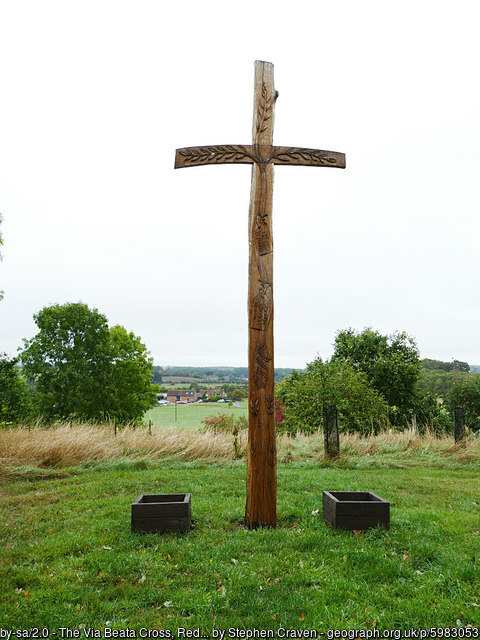
Today’s hymn from Sing Praise is a very well known one, “O Lord my God, when I in awesome wonder”. Stuart Hine’s translation of a hymn that was originally either in Swedish or Russian (I’ve seen both quoted as the original) has become a firm favourite, at least partly because of the memorable tune (although the two slightly different notes on the repetition of ‘art’ in the chorus catch many out).
I do wonder, though, whether its popularity is also because the first two verses appeal to a spirituality of nature that doesn’t demand Christian commitment. Stars, woods and glades, brooks and birds can be enjoyed by anyone, and only a vague belief in a creator is required to respond to them with “how great thou art!”
The last two verses, on the other hand, if the singer thinks about the words, are much more specifically Christian. “When I think that God, his son not sparing, sent him to die … on the cross, my burden gladly bearing, he bled and died to take away my sin” is at the core of our belief, and all the more reason to be thankful to our God. He is not a distant creator far beyond the stars, but among us and involved with us in sharing our suffering.
The last verse looks to the renewed creation promised by Jesus, which shall be our home. Interpretations of Christ’s return do of course vary between Christians, but we can agree that the greatest gift of God for which we can sing our thankful praise is that of eternal life, whether in the present existence or the one to come (whatever that may be like). How great thou art, indeed!
The book seems to say that only v1, 2 & 4 are based on the original “O store Gud” (1885) by Carl Gustaf Boberg (1859-1940), and I would tend to trust the book on this, not least because the more academic members of “The Hymn Society of Great Britain and Ireland” are terribly sniffy about this hymn, and think that Stuart Hine did a disservice to the original tune and words when he produced this hymn. So Stephen’s comment – that the first two verses are perhaps popular because they don’t require any particularly Christian conviction to sing them with gusto – are perhaps even more apt! But the hymn follows in the best traditions of quite a lot of psalms, which begin with the ways that the creation declares the glory of its creator, and from this foundation move to the salvation history of the way God deals with his people.
I think, myself, that the arrangement of the tune could do with some modifications in the way the harmony is laid out. B-flat is definitely a better key than C for modern congregations. But I don’t have any major quibbles with this hymn. It’s true: God’s wonders of creation and redemption are breathtaking.
Stephen and I had this song at our wedding. I am much nearer to God in his beautiful creation
Linda, I had forgotten this was one of your wedding hymns. I think it was a good choice.